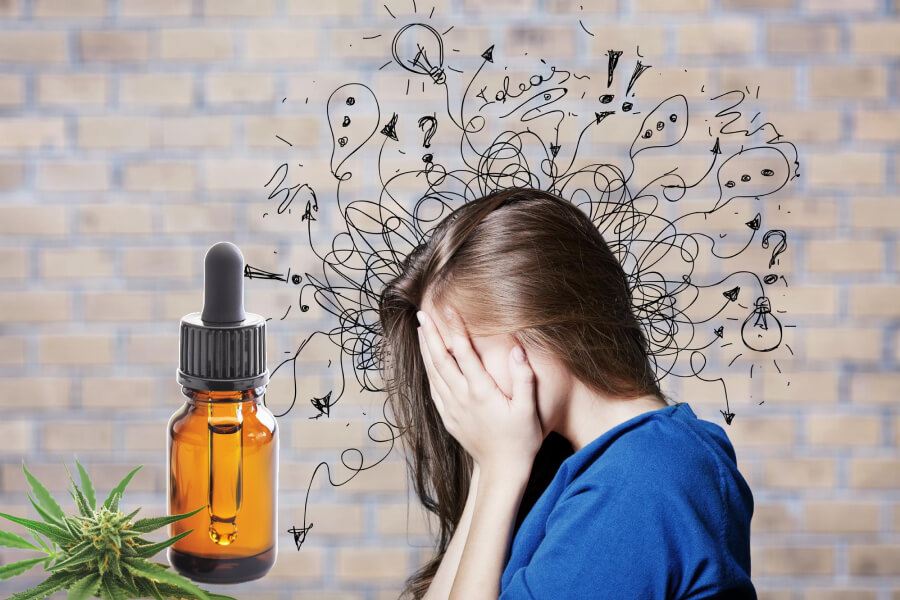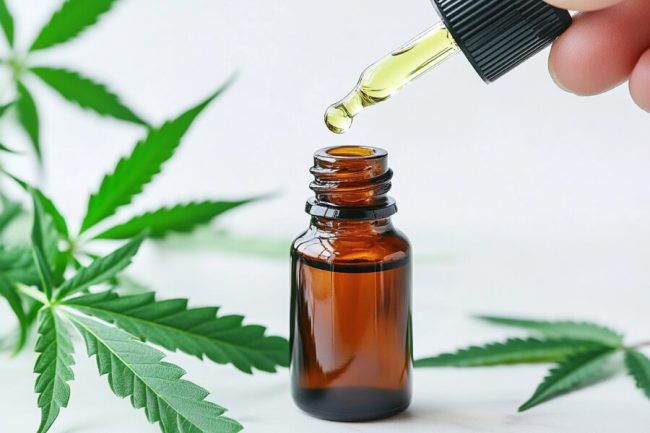In the increased advancement of alternative medicine, day by day, it has brought forth the realization and potency of CBD (cannabidiol) in so many medical applications.
Among these applications, the use of CBD in patients with ADHD has increasingly become a topic under discussion.
How does ADHD affect your life?
ADHD is a neurodevelopmental disorder with the following features: There are continued patterns of inattention, hyperactivity, and impulsivity.
These features, which might be mild at first, may interfere with the individual’s ability to focus on a task. They do not seem to complete their tasks.
- Inattention: poor attention span, difficulty in following instructions and completing tasks.
- Hyperactivity: too much fidgeting, talking and staying seated is a problem.
- Impulsivity: acting before thinking, interrupting others, and making hasty decisions.
Diagnosis can be done through a clinical assessment made by a professional doctor, which most likely includes a behavioral assessment and the review of medical history.
Traditional Treatment for ADHD
Traditional treatments for ADHD include medication, behavioral therapy, and lifestyle changes.
Other common medications include the stimulants Adderall and Ritalin, which increase attention and help control behavior by raising levels of certain brain chemicals.
- Medications: Stimulants, Non-stimulants
- Behavioral Therapy: Cognitive-behavioral therapy (CBT) and other therapeutic approaches
- Lifestyle Changes: Regular exercise, a healthy diet, and structured routines
Some advantages come from these treatments; still, many present side effects and sometimes are not efficient for all the patients, thus giving rise to the need for other alternatives like CBD.
Can CBD treat ADHD?
CBD found in the cannabis plant, among 80 other phytocannabinoids. It works with your endocannabinoid system to maintain homeostasis in most physiological processes, such as mood, sleep, and appetite.
- Nonintoxicating: Does not cause a “high”
- Endocannabinoid System: A system of receptors that regulate many important physiologic processes
Effect of CBD on ADHD symptoms
Over the past decades, several researchers have looked at the role of CBD in treating ADHD symptoms.
The research is in its early stages, but results are already indicating that CBD can make patients less hyperactive and impulsive.
- Highlights of the Study: Better attention, less hyperactivity and impulsivity
- On-going Research: Current research for understanding the long-term effects and optimal dosages
Benefits of CBD in Reducing Symptoms of ADHD
Many therapeutic effects are believed to be produced by CBD that could prove beneficial for people with ADHD. These include anti-anxiety, anti-inflammation, and neuroprotection.
- Anxiolytic: Has a calming effect and eliminates anxiety and stress often associated with ADHD
- Anti-inflammatory: Reduces symptoms of inflammation
- Neuroprotective: Preserves and supports brain health and function
Considering Potential Side Effects and Risks of CBD
While CBD is generally well-tolerated, it can cause side effects in some individuals. Potential side effects may include dry mouth, drowsiness, or changes in appetite with corresponding weight changes.
- Relatively common side effects: Dry mouth, Drowsiness, Changes in appetite
- Less common risks: Potential interactions with other medications, Changes in liver enzymes
Discuss underlying health issues and potential drug interactions with a doctor before starting on CBD.
Legality: Will Using CBD Be Legal to Treat ADHD?
The legal status of CBD varies by country and region. In Spain, it is only considered legal if it contains less than 0.2% THC (the psychoactive component of cannabis). Even so, it is important to become acquainted with local regulations and to purchase from reliable sources.
- CBD with Less than 0.2% THC is Accepted in Spain
- Regulatory Considerations: Assure that the guidelines and restrictions of the local region are followed.
CBD Oil Use and Dosage in ADHD
CBD dosage should always be started at low doses and increased gradually, depending on the response and expert advice. Following are some of the practical tips:
- Start Low and Go Slow: Initiate a low dose and slowly move toward an effective dose
- Consult a Healthcare Provider: Their advice will ensure tailor-made recommendations
- Monitor Effects: Keep track of changes in symptoms and side effects
The most common methods of consumption include tinctures, capsules, and edibles. The choice for the majority is dependent upon personal preference and convenience.
- Tinctures: Quick-acting, requires administration under the tongue
- Capsules: Easy administration, formulation-release profile
- Edibles: Convenient and long-acting effects
Conclusion
The potential of using CBD as a treatment for ADHD is offering exciting new perspectives.
More studies are needed to fully understand the potential benefits and risks associated with it.
Early indications together with anecdotal evidence can thus far attest to its potential efficacy in controlling symptoms of ADHD.
FAQs
What exactly is CBD?
CBD, or cannabidiol, is a non-psychoactive compound sourced from the cannabis plant, known for many potential therapeutic benefits.
How is CBD administered?
CBD is administered in a lot of ways, including tincture oils, capsules, gummies, beverages, and topical products. The form depends on personal preference and the condition being treated.
Which CBD is best for ADHD?
It’s subjective, as varied needs and the response of each person are different. Full-spectrum CBD contains other beneficial cannabinoids and terpenes that offer enhanced effects of CBD through the entourage.
How does CBD oil help with ADHD?
CBD oil is known to help decrease anxiety, increase attention, and thereby foster general brain health through the interaction it has with the endocannabinoid system.







